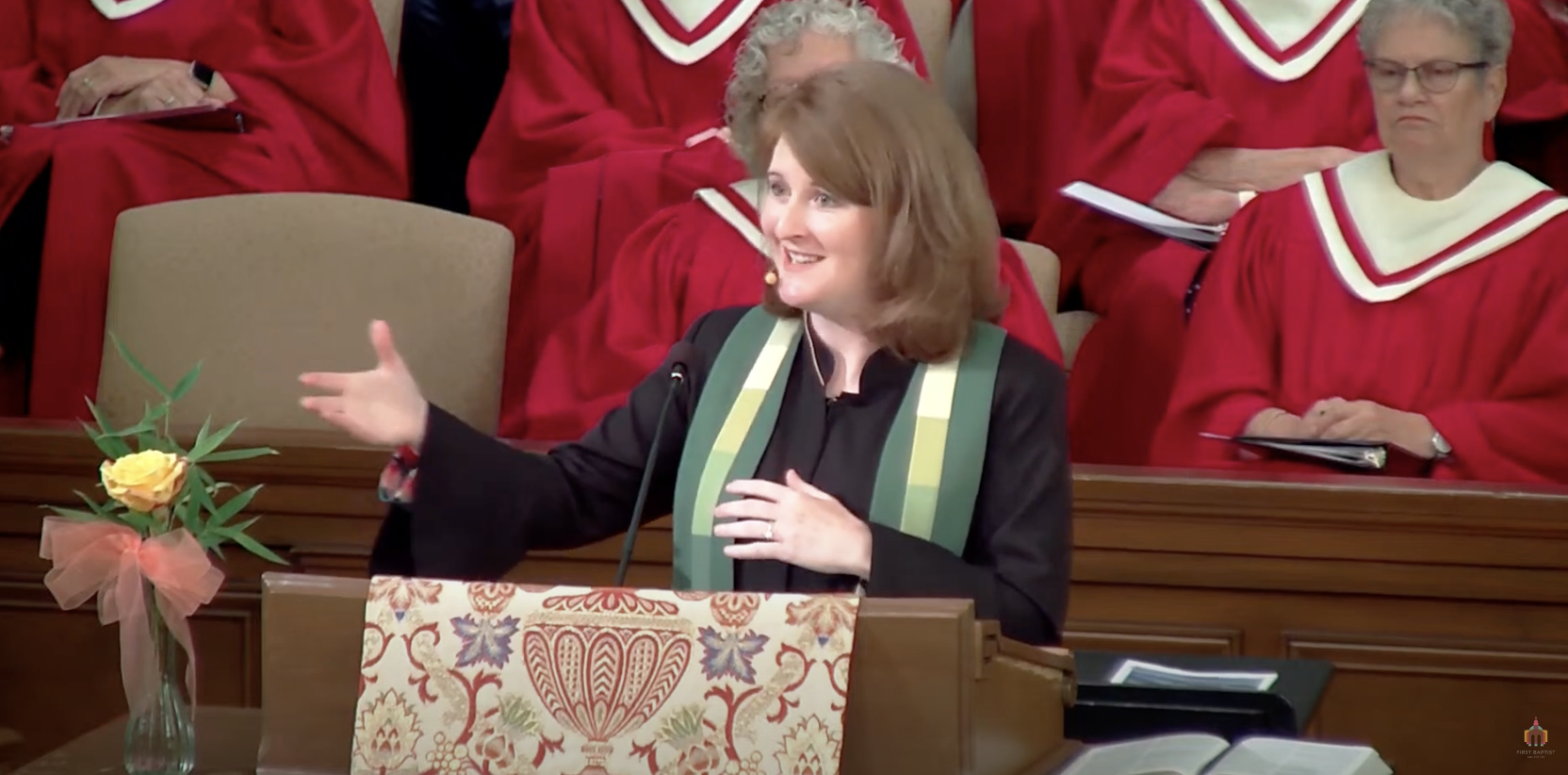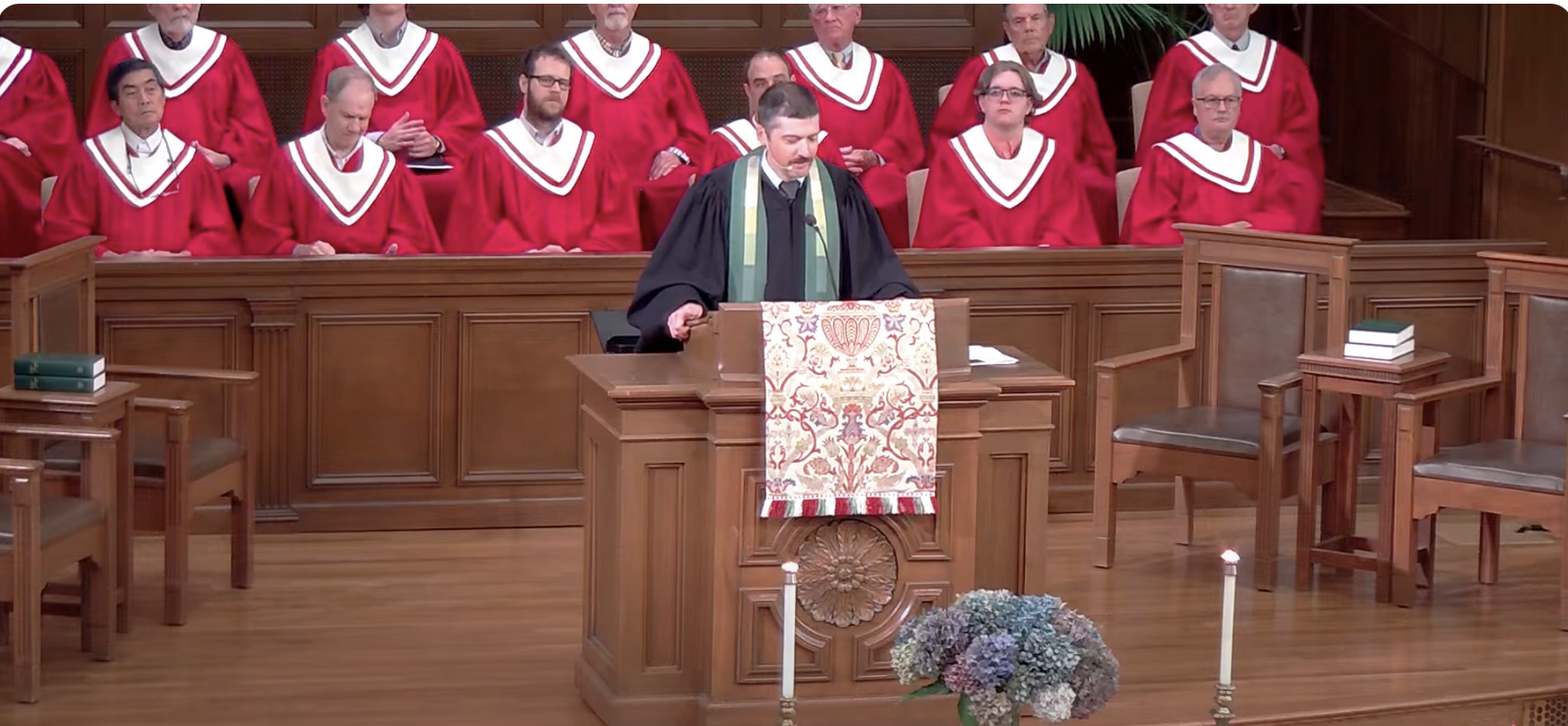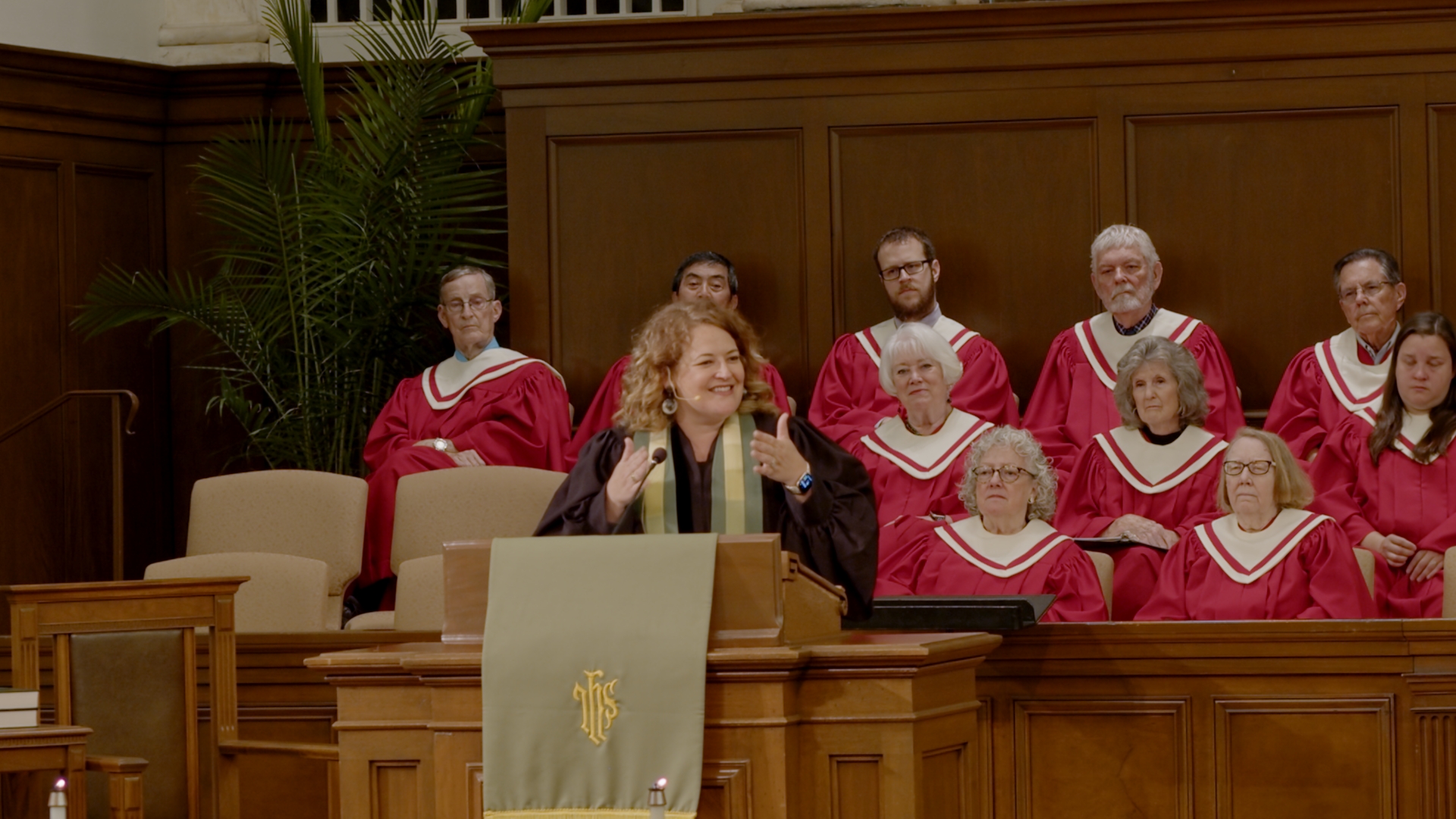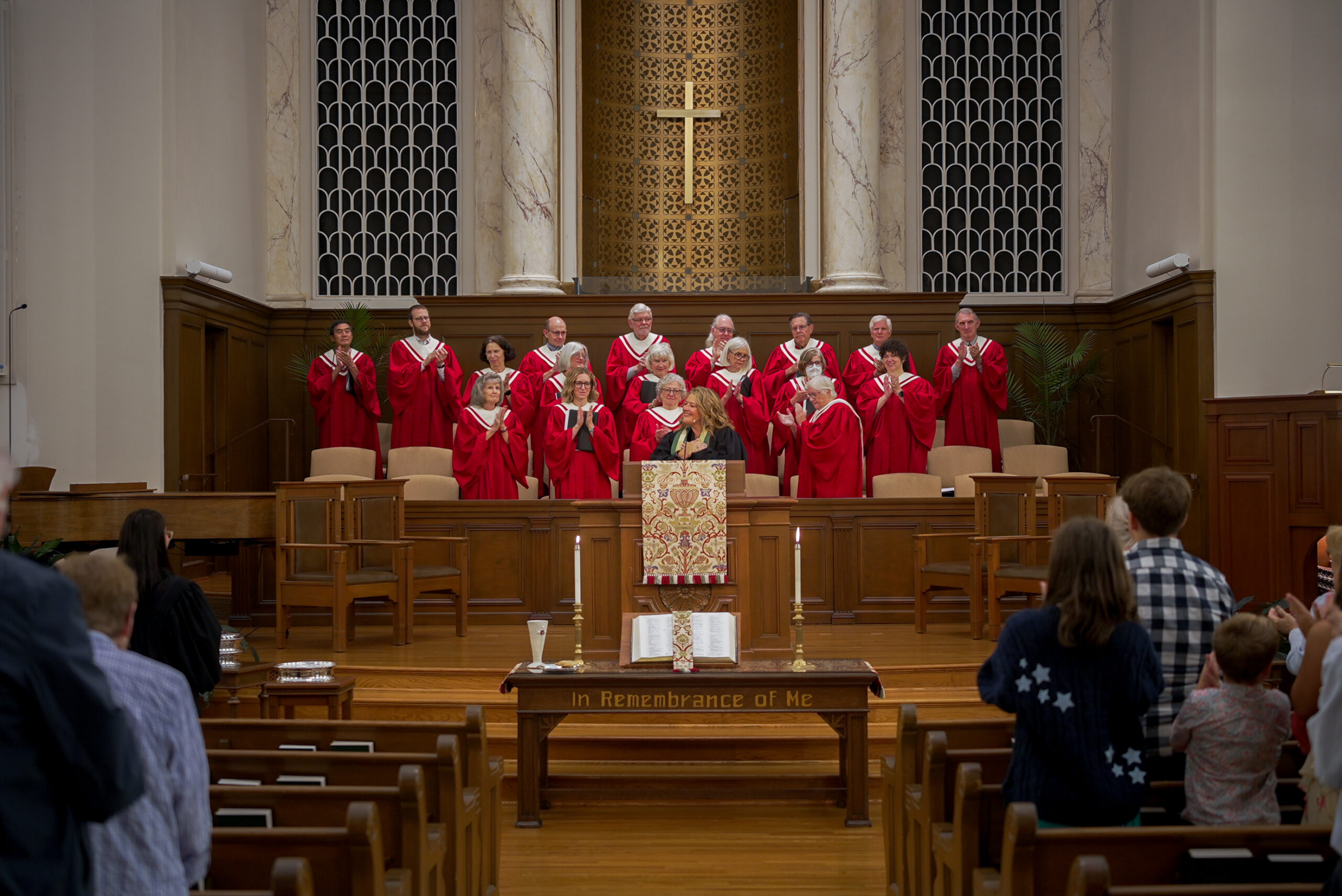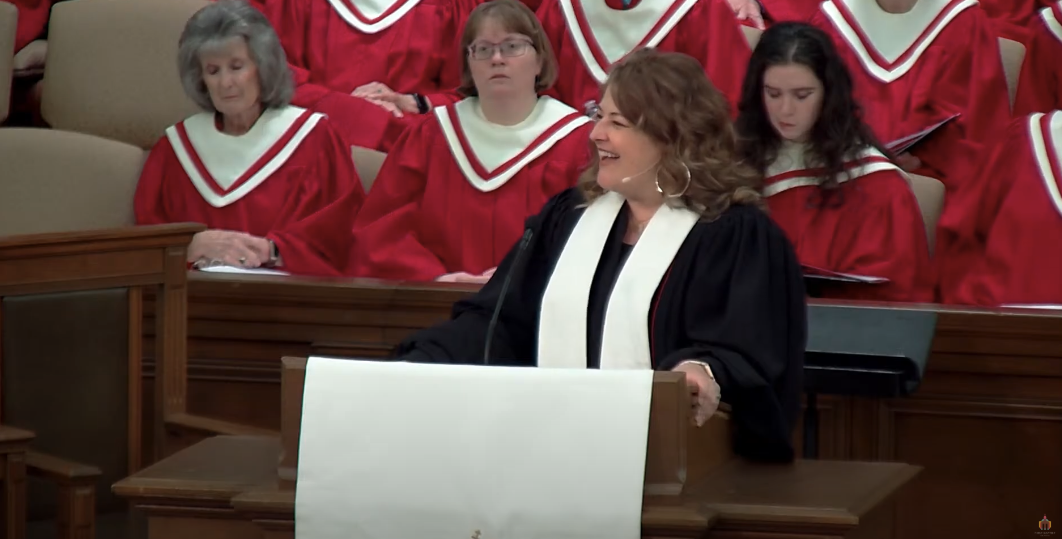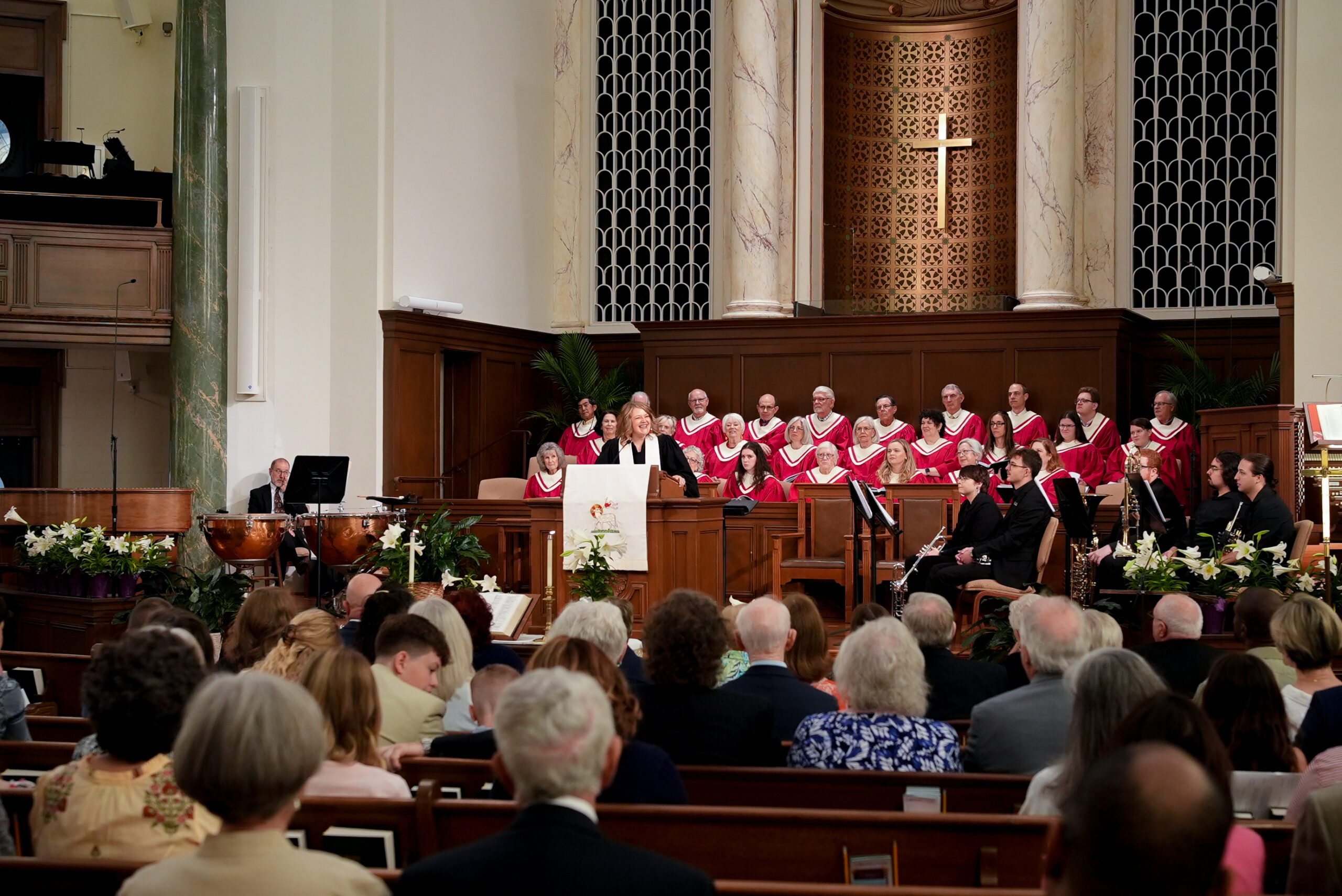I.John Buchanan, the great pastor of Fourth Presbyterian Church in Chicago, one told a story about his best instruction in sabbath-keeping: “My instructor in Sabbath-keeping was not a professor or spiritual director,” he said, “but a foreman at the East Chicago Inland Steel plant named Mike Paddock. His wife was the treasurer of the tiny congregation I served as a student pastor, and she wrote my salary check twice a month. Mike would deliver it along with two dozen eggs and a shopping bag full of tomatoes, cucumbers, and honeydew melons. Mike’s seminar on Sabbath-keeping occurred on a summer Saturday morning when he saw my car at the church. “What in the actual heck are you doing here on a Saturday morning?,” he asked me. [I modified Mike’s colorful language just a smidge!] “Well,” John stammered, “I’m here being available to the congregation. I’m pretty much gone all week, at school, so Saturday I’m here in case anybody needs me.” “Let me tell you something,” Mike said. “Nobody needs you today. If they do, they’ll call you. Nobody wants to see you today. They’re busy. They’ll see plenty of you tomorrow. So go home. Cut your grass, wash your car, sit in your yard, play with your kids. Get outta here.” As John concludes, “I did what he said and have tried to abide by it ever since!”1
II.We begin today a long stretch of sermons rooted in the Gospel of Mark, in a series called “Defying Norms.” That’s what Jesus’ ministry was about, you see — inviting people of all kinds to reconsider the norms of their lives, their work, their energies, their relationships, their traditions, their religion, their understanding of God, their place in this world – all of it in light of God’s dawning dream. We’ll consider what we’ve normalized for the sake of stability and what Jesus calls us to disrupt for the sake of the gospel. And today’s norm to consider is about the sabbath.
As we begin, let’s talk briefly about the Gospel of Mark, since we’ll be learning from him over the next several weeks. Mark is widely understood to be the first written Gospel of the four – earliest and also the shortest, written anonymously likely in the early 60s A.D. Mark’s story of Jesus moves at a fast clip; just read the whole gospel and count how many times he says, “immediately.” One of our former pastors, Dr. Randall Lolley, reminds us that “Mark’s Jesus story does not so much march; [rather] it dashes along, in a kind of breathless wonder.”2 As we study Jesus’s Galilean ministry according to Mark this summer, notice the crisp storytelling, the number of questions Jesus asks, his emotions and vulnerabilities, and the unique urgencies and clarity he offers of what it means to live faithfully with God..
Now we turn to today’s two stories, two anecdotes early in Jesus’ ministry, both that hold this tension between the letter of the law and the spirit of the law, a tension that involves, of course, the Pharisees. A quick, cursory read of the gospels might lead us to believe that the Pharisees were the bad guys, the ones always trying to thwart Jesus, the pious and persnickety priests far more concerned with the law than love. Yet scholars tell us that the Pharisees were among the most admirable Jews in Jesus’ time. They encouraged their Jewish brothers and sisters to see the laws passed down to them as gifts rather than burdens; virtuous living was for them at the heart of their faith.3
So when Jesus and his disciples were making their way through a field that day plucking heads off the grain, or when Jesus entered the synagogue and healed a man whose hand had withered, or any of the other 11 times Mark tells us Jesus healed on the sabbath, these law-abiding religious folk had sure reason to be offended. For in their eyes, Jesus wasn’t just breaking a law buried in the code of ethics — paragraph 17 of code 247, part b — but rather he was breaking a big one — one of the top 10, even! Remember the sabbath day and keep it holy! For a people whose entire existence had been defined by the enslaved work they’d done in Egypt under Pharaoh, this commandment was at the center of their faithfulness to the God who set them free. “Six days you will work and labor,” God commanded them, “but the seventh is to lay down the work and rest, just as God did in creating the world.” For the most observant Jews, this wasn’t just about their obedience; it was about their identity! Abstaining from work on the sabbath reminded them that they belonged to God, that there would be enough, that no labor – however worthy – should define every aspect of their existence. Sabbath meant resisting, divesting from the lie that productivity was their idol, and experiencing an alternative way of being – as frequently as once a week.4
But let’s be clear: technically, Jesus did no work — the 39 classes of prohibited labor on the sabbath didn’t include plucking grain. And technically, Jesus didn’t do anything with that hand — he didn’t spit or speak, mix a serum or apply anything to the wound; all that happened was that the man responded to Jesus’ invitation to stretch out his hand, and as Mark tells it, “his hand was restored.” Jesus wasn’t suggesting abolishing the sabbath or the law! Rather he was inviting the Pharisees to refuse the reductionist view that the sabbath is only about restrictions rather than freedom, to reconsider sabbaths that miss the point in light of sabbaths of God’s abundant life, and to remember that his authority as God’s son conveys God’s sabbath grace so amazing it was disorienting. By his actions, he centers the person in front of him – in this case, the man whose withered hand is keeping him from the depth of rest he most needs.
III.I feel such compassion for the Pharisees. I really do. They were just trying to do what they felt the Lord had told them to do. It was their job to read and interpret scripture, and they were doing it well. When Jesus asked if they’d ever read that story of David and his hungry companions, I feel certain at least one of them rolled their eyes. Have they read the scripture? Of course they had! I have to wonder if among that group of religious leaders, there were a few who felt internal discomfort at Jesus’s prompting. I imagine their wrestling sounded familiar: But we’ve always done it this way! But my parents and grandparents and great-grandparents and on and on believed this way! But I can’t suggest they were wrong! But it’s too disruptive to consider that a new expression of these old traditions might be more faithful than the one I know! But this way is right… so surely that way must be wrong! But I’m only trying to be good.
It reminds me of that old story of the desert where trees were scarce and fruit was hard to find. As legend has it, God wanted to make sure there was enough for everyone, so God came to a prophet and said, “this is my commandment to the people for now and future generations: no one shall eat more than one fruit a day. Write it down. Anyone who breaks this law will be considered to have sinned against God and humanity.” The prophet was clear: God said it, that settles it. That became his life’s primary proclamation.
The people observed that law faithfully, year after year. But when scientists discovered a way to turn the deserts into green land, which made the country blossom with livestock and grain and trees now bent over with fruit, that law was still strictly observed and enforced. So total was the people’s devotion to this law that when anyone pointed out the inherent sin in letting fruit fall to the ground and rot while people starved was labeled a blasphemer of God’s truth, an enemy of God’s people, an outcast from God’s realm. Preachers banged their pulpits while preaching sermons against the blasphemers. But nothing was done to change the law, because the prophet had long since died.
As the years passed, some people scoffed at the religion for seeming to so utterly miss the point. Others broke the rule, but carried guilt with them every time they did. The many kept their strict adherence to it, and with each passing year, thought themselves holier than the last. And one wondered if only that prophet had had the courage and awareness to keep listening to God when the circumstances changed, and a softness to understand that God’s Word is not simply to be revered, but to bring life and welfare to God’s beloved children.5
IV.So where is the good news for today? What might we learn from Jesus and the Pharisees to apply some 2000 years later as we live and move and have our being in this world filled with norms?
First – let’s remember that the sabbath is for prioritizing humanity. The word sabbath means — quite literally — “the time of rest, for taking a deep breath, for reverie,” for what Jews call nefishin, which means “the time for air,” “time cleared-for-play.”6 So then to keep sabbath “is to be in step with the way God intends the world to work, participating in an act of ‘re-creation’ in which we are put back in touch with the way in which God intends for life to be enjoyed.”7
Sabbath softens. It defies norms. It invites us into a different realm of being – not because work is bad, but because the interplay of work and rest is so good. Sabbath takes the oppression of the clock, the sharp angles and lines of work, the relentless drumbeat of productivity, the rules of routine, and relaxes them, makes them more tender and pliable and quiet, so that we who practice sabbath can hear God’s voice and feel God’s presence in a wholly new, life-giving way.
Unlike 24/7 noise of our living where every minute of every day is available for shopping, working, producing, deciding, capitalizing, I wonder – might you defy norms so that your sabbath can soften to a stop? Wayne Muller once said, “Sabbath is not dependent on our readiness to stop. We do not stop when we are finished. We do not stop when we complete our phone calls, finish our project, get through this stack of messages, or get out this report that is due tomorrow. We stop because it is time to stop.”8 What might you hear from God when you do?
Might you also consider where in your sabbath-ing, you’ve become like old John Buchanan, who needs to be needed and can’t bear to stop lest something fall? Our congregation is full of helpers. You know just who you are, and yes, I’m talking directly to you now. Let’s hear a word from the Gospel of Matthew now. Borrowing from the Gospel of Mark, Matthew follows this same story of Jesus plucking the wheat on the Sabbath with a holy invitation to rest. “Come to me,” Jesus invites, “all you that are weary and carrying heavy burdens, and I will give you rest.” Prioritizing humanity means our own too. We join the work of God – and bear witness to God’s grace – just as much in our rest on one day as in our labor on the other six.9
Second, faithful living is for life. I love that Jesus refused to give up on the Pharisees. He worked on their ‘hardness of heart’ just as he did with the disciples who suffered the same condition. To Jesus, the Pharisees weren’t canceled or cast out, rather he walked with them and talked with them all the way to the cross and the tomb. We’ll see this time and time again in Jesus’ ministry – especially on the sabbath – as he heals and feasts, lifts up the lowly and releases the captives, he does so with the Pharisees! Because you see, all the while Jesus moves through his days, he’s defining both the sabbath and the whole of religious living by life itself! As one scholar says, “Jesus insists that nourishment, restoration, and preservation of life fulfill rather than violate the Sabbath.”10It’s no wonder he was so grieved that the Pharisees couldn’t understand this. For Jesus came that we may have life! And have it in abundance, right? Even so – especially – on the sabbath. Even – especially – for the Pharisees. Even so – especially – for us.
So might you consider the places in your life where your hearts have grown hard in a way that are preventing your flourishing? Might you consider who is on the outside of those stiffened places, and what has withered within you as a result? Might you take the risk of faithful living for life’s sake?
Barbara Brown Taylor once said of sabbath, that “people flock to sabbath for the rest part – the hammock part – but once they get into it, there’s the looking into the night sky part, which is ‘why am I here?’ Sabbath,” she says, “is a practice in death,”11 she says. To which Jesus says, “living is a practice of resurrection.” Amen!


